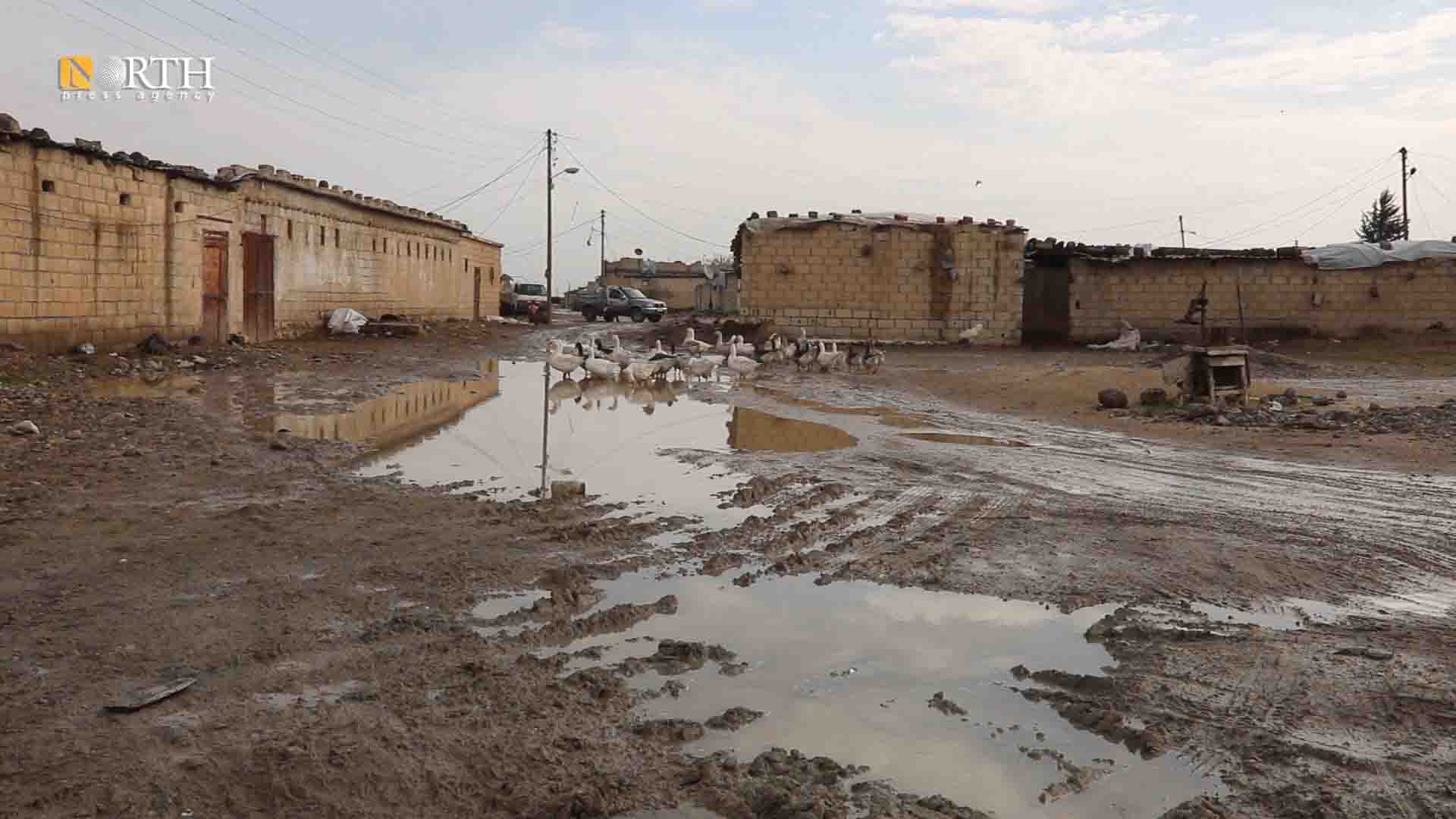DERIK, Syria (North Press) – Poor roads and the lack of a sewage system in the Judi neighborhood on the northern side of the city of Derik, northeastern Syria, cause daily problems for the neighborhood’s residents, including the formation of swamps that attract flies and insects and to the transformation of an old riverbed in the neighborhood into a garbage dump.
The residents of Judi neighborhood have been suffering for decades from the deterioration of roads, the spread of waste and the formation of swamps in the winter, the spread of flies and insects in the summer, and unpleasant odors coming from barns and cowsheds in the neighborhood.
Judi neighborhood is one of the oldest neighborhoods in the city and is densely populated, but the nature of random and ad-hoc construction remains prevalent, in addition to the presence of dozens of barns.
Nazira Sabri, a resident of Judi neighborhood, said that she is often unable to leave her home due to poor roads and the formation of swamps and mud, and her children cannot play because they fall into muddy swamps and dirty their clothes.
She added that the spread of sewage in front of homes makes movement within the neighborhood more difficult.
“The streets must be paved and a sewage system must be established,” she said.
Hussein Hajji, a resident of Judi neighborhood, accused the municipality of Derik of negligence and not listening to the residents’ demands.
“We have demanded several times to organize the neighborhood, but no one listens,” he added.
Hajji pointed out that most cars refrain from entering the neighborhood due to the bad roads, as well as the spread of unpleasant odors from the barns and the spread of dirt in the streets.
“The municipality does not remove garbage from the neighborhood,” he said.
Residents of the neighborhood say that the lack of services in the neighborhood leads to a lack of health conditions, which causes respiratory and skin diseases in their children.
These diseases include lower and upper respiratory infections in addition to allergies, asthma, and enteritis, according to a previous statement by Derik-based pediatric disease specialist Rashid Omar.
Judi resident Umm Khalid says that her suffering continues throughout the year.
She pointed out that she incurred additional expenses in these situations, as her children’s shoes wear out quickly due to the mud, and the need for additional quantities of cleaning materials increases due to the large number of clothes that she must wash as a result of her children falling into the open drainage streams.
She added that their budget is not sufficient for this neighborhood, referring to the negligence of the municipality.
Hassan Muhammad, an administrator of Derik municipality, said that Judi neighborhood has many housing violations, despite it being part of the organizational plan of the city of Derik, as part of it is a residential suburb and the other is home to many livestock barns.
Derik municipality, in conjunction with the commune that serves the Judi neighborhood, is studying the possibility of implementing a project to move livestock barns to an expanded area outside the city, as the barns cause suffering to residents and impede the municipality’s work in establishing projects and serving the neighborhood, according to the People’s Municipality in Derik.
Muhammad indicated that the neighborhood’s sanitation service needs a main line connecting the sewage system to the drain behind the Bourza Dam, because the possibility of connecting the sewage path to the existing lines is very difficult, because there is a difference in the level.
He said that the sanitation problem is intractable, as the cost of the downstream project is very high and exceeds one billion Syrian pounds (SYP).
He stated that they prepared a study and a plan for the project with specialized engineers, “however, the municipality needs financial support, and cannot implement it on its own,” he added.
“We are awaiting a response from the competent authorities to allocate the municipality with an emergency budget to implement the project and solve the neighborhood’s problems,” he declared.

